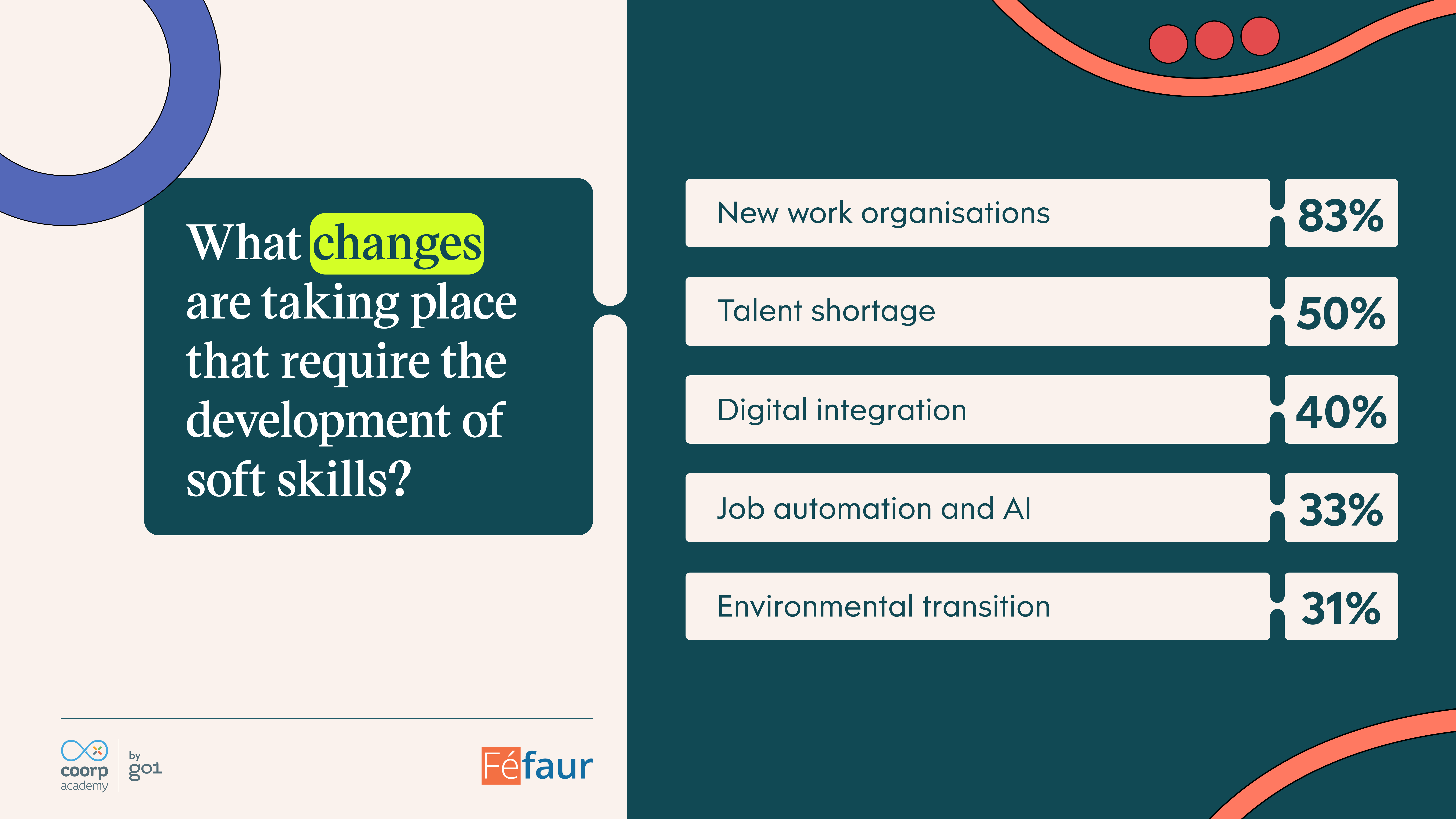Have you got the soft skills ?
Learning Innovation
 What will be your job tomorrow? What kind of capacity will you need to acquire ten years from now? That’s hard to say, but one thing is certain: informal “soft skills” will be in high demand.
What will be your job tomorrow? What kind of capacity will you need to acquire ten years from now? That’s hard to say, but one thing is certain: informal “soft skills” will be in high demand.
In 1958, Serge Gainsbourg sang about a depressive ticket puncher in the metro. Nearly sixty years later, the function has long disappeared, replaced by data miners, social media managers, user experience designers, sustainability experts and even chief happiness officers… All these new jobs don’t sound so familiar to you? Don’t worry: they didn’t even exist at the beginning of the century, or barely. Actually, according to a 2015 study by American firm Wagepoint, 60% of the jobs that will exist in 2030 haven’t been invented yet. The cause of this disruption is the digital revolution, but also the new environmental paradigm. Right now, we’re in the eye of the storm, experiencing a deceiving impression of quiet before the tempest, with its uncertain, unpredictable trajectory and destructive power. In such a context, it’s hard to predict the future. The only thing we know is that we cannot know. According to professors Karl Fisch and Scott McLeod, half of the knowledge acquired by American students during their first year of college will be obsolete within three years(1). Our jobs, our skills and our knowledge, all have an expiration date, and we’re starting to realize it.
“At Google, expertise ranks only 5th among the criteria for hiring someone. Personality counts, and our soft skills shape it.”
But there’s nothing bleak about that. This coming mutation isn’t necessarily a disaster. Let’s look at the glass half full and see this new era as a challenge: the challenge of constantly learning. Which is actually a necessary posture: executives under 35 change jobs every 2.9 years on average(2). But what does “learning” even mean in this age of rapidly evolving digital tools and business practices? It’s actually not so much “hard skills” such as experience, college degrees or technical expertise that need to be constantly updated, but rather our more informal “soft skills” such as our emotional quotient, our capacity for negotiation and problem-solving, our creativity and our proficiency with digital technologies. Soft skills are more transversal, and therefore more durable. And that’s what can make a difference during a job interview: at Google for example, expertise ranks only 5th among the criteria for hiring someone. Personality counts, and our soft skills shape it. But like any quality, they can be improved.
“Online training programs, mobile apps… These tools have one major advantage: flexibility. You can work on your soft skills wherever and whenever you want, according to your own personal needs.”
Today, employers aren’t the only ones responsible for training their employees or enabling them to acquire new skills. Anyone can individually take control of their own evolution and choose to enhance their strengths or work on their weaknesses. That’s where online training programs and mobile apps can be a useful educational resource on a daily basis, whether they consist in brain training (Peak, Elevate) or personality tests (Talentoday, Praditus). These tools offer one major advantage: flexibility. You can work on your soft skills wherever and whenever you want, according to your own personal needs, on the subway or during your lunch break. At Coorpacademy, we believe that the learning revolution resides precisely there, with flexibility and adaptiveness. Training is now carried out in the long term, over an entire lifetime, by removing constraints, occupying free spaces and facilitating engagement. Durably.
(1) https://teachingandlearninginhighered.org/2013/07/15/preparing-students-for-what-we-cant-prepare-them-for/
(2) Mobicadres study 2014 by Deloitte-Nomination


